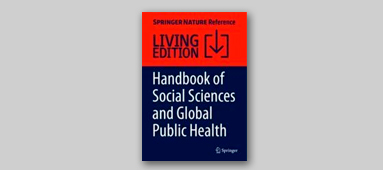Acebillo-Baqué M. and Maestripieri L. (2023) ‘Intersectionality Theory and Its Application in the COVID-19 Pandemics’, in Liamputtong P. (ed) Handbook of Social Sciences and Global Public Health, Springer.
[ Full text ]
COVID-19 has affected individuals and social groups differently, depending on their social positions and contexts, ultimately deepening inequality. Health policy responses to the effects of the pandemic have generally lacked an approach that addresses the complexity and interlocking characteristics of social stratification processes that construct or reinforce previous experiences of vulnerability. This chapter is aligned with critical social sciences accounts and argues that research and policy analysis need to incorporate intersectional approaches to further explore how the mutual constitution of existing structures of inequalities and dynamics between them relate to health and socioeconomic impacts on societies. With this aim, the chapter reviews the relevant academic literature in order to (1) explore the analytical contributions of intersectional perspectives to conceptualize and analyze inequality and policy responses to it; (2) show how an intersectional analysis of COVID-19 tackles the main challenges of examining the inequality derived from the pandemic and the current limits of health policies. By doing so, the authors uphold that the analytical contribution of intersectionality may help scholars and policymakers to better comprehend how the impact of COVID-19 varies among individuals and social groups. They also sustain that the adoption of intersectionality can support the design of health policies that mitigate the unequal effect of this pandemic and others to come, instead of intensifying their negative impact.















